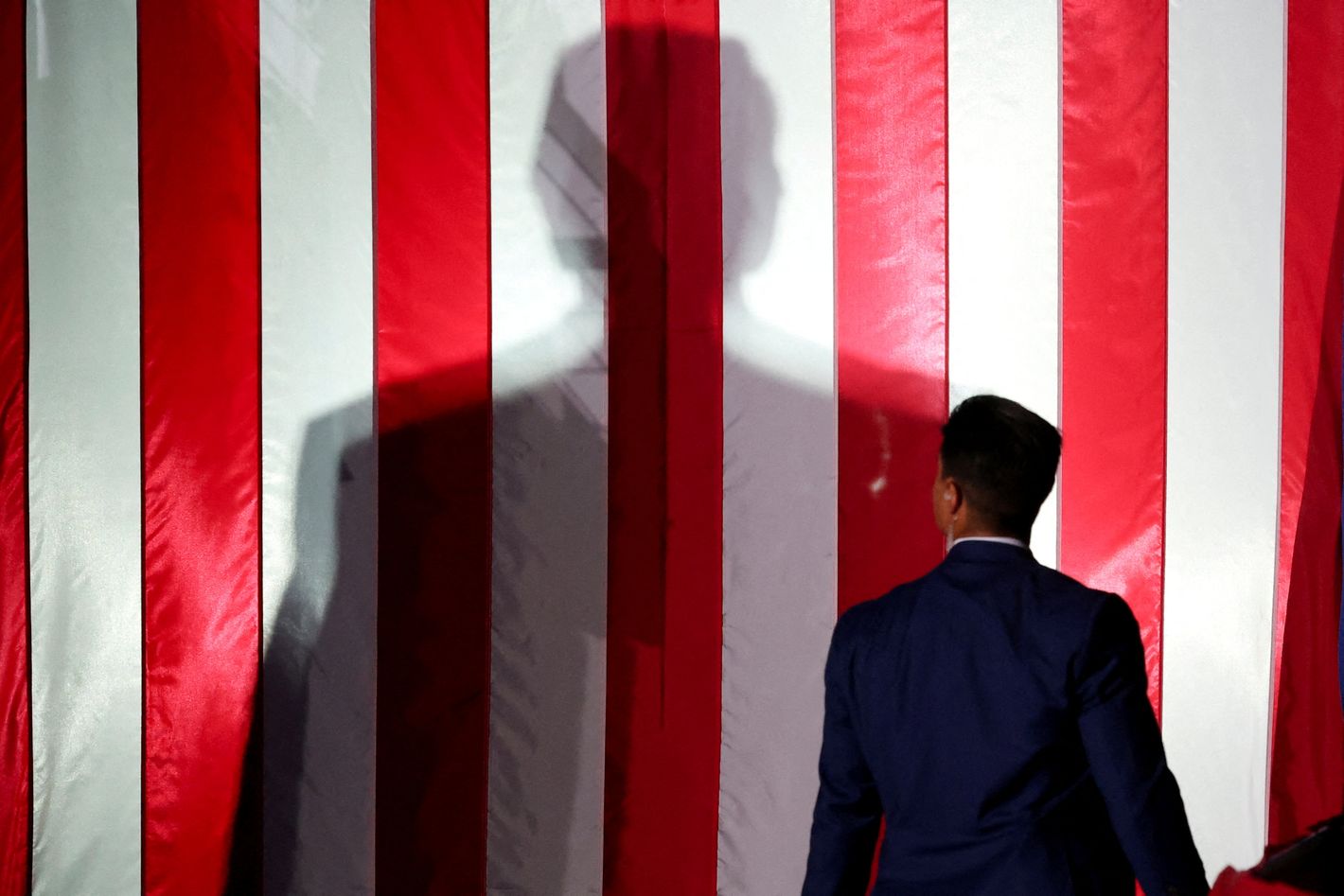Photo: Brendan McDermid/Reuters
What’s an anti-woke intellectual warrior to do these days?
There are two clear paths: the victory lap or the firm turn against MAGA. Each is, in its own way, intellectually honest. As the Trump administration egregiously violates the First Amendment and civil liberties broadly, pulling federal funding from universities that don’t properly obliterate DEI initiatives and suppress nonviolent pro-Palestinian activists (and attempts to deport legal residents who’ve committed no crimes), it’s obvious that the long battle against “woke” or social-justice ideology has a victor. There is little like a 2010s-style resistance movement in America today, and very few liberals are talking up “trigger warnings” or demanding Spanish-speaking people be referred to as “Latinx.” When White House press secretary Karoline Leavitt recently told a New York Times reporter that she wouldn’t respond to inquiries from anyone who placed their pronouns in their email signatures, this reality was underscored: The official ideology of the United States government is anti-woke.
Any discussions about the era of woke or the supposed excesses of social-justice causes must begin there. If an intellectual fails to acknowledge this crucial point, they’re either disingenuous or not very bright. For those who made a great deal of money and attracted large followings over the last half-decade or so railing against all things woke, this is an uncertain moment. Unless they want to lie to themselves, they can’t pretend it’s still 2020 and millions are marching in the memory of George Floyd.
What do those aforementioned two paths look like in practice? They are probably best represented by two prominent activists, Christopher Rufo and Richard Hanania. Rufo rose to fame as the leader of the movement against critical-race theory, and he has found great influence in the second Trump administration. A longtime conservative, Rufo is now proudly MAGA. Trump’s attacks on higher education are ripped straight from Rufo’s playbook. If he still pretends woke is more dominant than it actually is — to a hammer, everything is a nail — he is at least openly supportive of Trump and understands that what he reaps is what he sows: an administration willing to violate free speech and due process in the name of combating socially progressive causes.
Hanania is, like Rufo, a warrior of anti-woke. Even more extreme, in some ways, he once posted pseudonymously on several white-supremacist and misogynistic websites. If he disavowed that era of his ideological development, he still could be called, based on his public writings, a racist and misogynist. Hanania’s story has a new twist: He is now, unlike Rufo, explicitly anti-Trump. “I think there’s a level of corruption here, a level of blatant sort of corruption to the way government is working that is unprecedented, at least in our recent history,” Hanania recently told Vox. Admitting, on “pure policy,” there was much he liked when he it came to Trump’s war on DEI, “if you’re looking at where the movement is going, [when it comes to] how political movements and how people in power should behave and act in their relationship to truth and the relationship to the rest of society, I think it’s gotten pretty bad.”
Is anti-MAGA a new grift for Hanania? Or is he earnest? It doesn’t matter much; he, like Rufo, has made his public pronouncements, and he is taking the action he sees fit. The more intellectually confused position may be best represented today by Bari Weiss’s Free Press, which can neither strongly denounce Trump like Hanania nor, like Rufo, transition to being a full-throated arm of the conservative movement, like almost all right-wing media. Before Trump was inaugurated again, the Free Press had an obvious niche: There were a good number of centrists and left-leaning liberals who had grown disenchanted with the progressivism of the late 2010s and early 2020s. In retrospect, it was absurd that an opinion piece published in the Times by a sitting senator could trigger the effective firing of a top editor and mass revolts among staff. The performative aspects of woke were exhausting, and they did chill free speech.
But now it’s the federal government plainly attacking speech and behaving lawlessly. If someone like Hanania is less concerned about the fate of college campuses, he understands that the second Trump administration, by its very nature, is more destructive than the first. The Free Press, at least for now, does not. There is an opinion piece that argues, in fact, Trump is not defying the Supreme Court by refusing to return Kilmar Abrego Garcia to the United States. Another celebrates a Trump administration effort to quash Biden-era “disinformation” grants. They also published a soft-focus profile of Usha Vance, the Second Lady.
The greater question might be who this is really for. When Trump’s return to the White House was still hypothetical, anti-woke as a dissident movement aimed at a liberal elite made some degree of sense. But now anti-woke is elite. It is winning or has already won. The anti-woke intellectual or media organ like the Free Press that both wants to excoriate liberals but not fold fully into the MAGA wing — Weiss, for all the ways she has sparred with the left, is not directly influencing Trump policy like Rufo — is in an intellectual no-man’s-land and could be eventually doomed to irrelevance. Yes, you might be right on the merits about the woke left, but so what in 2025? Who gets served? Either you like that Trump is laying waste to the federal bureaucracy, violating court orders, and undercutting the First Amendment, or you don’t. Those are the terms of engagement. It’s absurd to pretend otherwise.
Related

